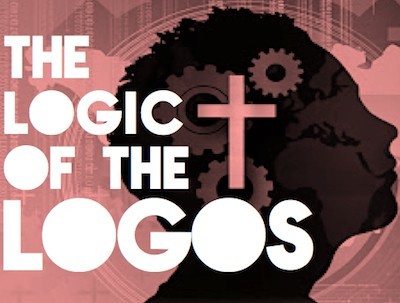
“A mind is a terrible thing to waste.” This slogan, first broadcast by the United Negro College Fund in 1972, has become something of a John 3:16 for educators seeking to evangelistically rouse students out of intellectual slumber. If I could tailor this slogan for our Biola community as we embark on a new semester, it would become: “The mind of Christ is far too precious to not cultivate.” While lacking the elegant phrasing and bumper sticker quote-ability of the original, it does express something I hope we can pause to ponder as we enter our classrooms.
I begin with a confession: During my years as a Biola student, cultivating the mind of Christ seemed like such an abstract goal compared to the concrete goals of writing papers, taking exams, and crossing classes off a graduation checklist. I slowly turned my studies into something far more mundane and nearsighted than the passionate and worshipful pursuit of Christ’s mind. A Grand Canyon-sized rift began to erode its way between my head and my heart.
To see where I went wrong, consider a documentary that recently aired. A film crew followed students to a spiritual retreat were they were blindfolded, handed a bow and arrow, and told to hit a distant bullseye. The exercise was supposed to help students realize their inner divinity. Arrow after arrow plunged into the dirt. At a Christian university, of course, we are not aiming at realizing our own divinity, but the true divinity of Jesus over all of life. If, however, we are blindfolded to the target, if we lack a clear vision of what the mind of Christ looks like, then, no matter what academic accolades we achieve, our arrows will miss the mark.
THE MIND OF CHRIST IN MATTHEW 22
Let’s take the blindfolds off and gain some biblical clarity on what we’re aiming at this semester. When we look biblically at the mind of Christ we see a mind that fully loves the Father. When a lawyer asked Jesus to define the greatest of the 613 commandments from the Law, Jesus answered, “You shall love the Lord your God with all your heart and with all your soul and with all your mind” (Matt. 22:37). How do we love God with all of our minds? We best exegete the greatest commandment not in abstraction, but in the concrete person of Jesus who loved His Father with all His mind. How did history’s Greatest Keeper of history’s greatest commandment love God with His mind?
A few verses before Jesus answers the lawyer’s question, He demonstrates what a mind that fully loves the Father looks like in action. On the Tuesday before His execution, the Sadducees put the mind of Christ to the test. These veterans of philosophical debate told Jesus a story (See Matt. 22:23-26): A woman loses her husband. The dead husband’s brother steps in to marry and support her. He dies too, and she marries yet another brother-in-law. The sad story repeats on down to the seventh brother. Finally, the woman who had seven successive husbands dies. With this Shakespearian tale of tragedy, the Sadducees had pulled back the metal teeth of the logical trap. They then set the bait with a simple question: “At the resurrection whose wife will she be, since the seven were married to her” (Matt. 22:27)?
The Sadducees’ question puts Jesus in the middle of a dilemma. If the dead will one day rise, something Jesus believed that the Sadducees rejected, then whose wife will the resurrected woman be in the afterlife? Jesus couldn’t say “All seven” without contradicting monogamy law, and He couldn’t say “Just one of the seven” without being totally arbitrary. The only way out of the dilemma, so the Sadducees thought, was to reject the idea of a future resurrection altogether and embrace “the doctrine of the Sadducees: That souls die with the bodies” (Josephus, Antiquities of the Jews, 18.1.4).
How did the greatest mind to ever love the Father answer? Did he answer…
- “Quit asking questions and take an irrational leap of faith!”
- ”I shall smite thee with a mighty smiting for questioning me!”
- “Hey, what’s that over there!” and run for a nearby cave.
The answer is D. None of the above. Jesus addressed this intellectual challenge to His worldview head on: “When the dead rise, they will neither marry nor be given in marriage” (Matt. 22:29-30). Jesus detected a hidden premise in the Sadducees’ argument, the false premise that resurrected people will be married.
Having exposed the logical error of the Sadducees’ anti-life-after-death argument, Jesus then offers His own pro-life-after-death argument:
Now about the dead rising—have you not read in the book of Moses, in the account of the bush, how God said to him, “I am the God of Abraham, the God of Isaac, and the God of Jacob”? He is not the God of the dead but of the living. (Matt. 22:31-32)
See if you can follow the logic of the Logos: In short, if God is (present tense) the God of three dead patriarchs (as Exodus 3:6 says), and if God is not the God of the dead but of the living, then Abraham, Isaac, Jacob must still, in some sense, be alive. It is false, therefore, that “souls die with the bodies.” We see here something of the brilliance of the greatest Mind to ever love the Father.
THREE RESOLUTIONS
With a clearer biblical vision of the mind of Christ (albeit there is far, far more of His genius to behold), I briefly suggest three resolutions to help us more intentionally reflect Him this semester:
1. Resolved, to think biblically. Jesus’ exchange with the Sadducees shows us something of the tremendous grasp He had on Bible. For Him loving the Father with all of His mind included studying the verb tense and theological gravity of Exodus 3:6. When we take Scripture seriously, unearthing its ancient meanings, following the grammatical flow, pondering the power of each inspired word, we are not just fulfilling a Bible unit requirement; we are learning to think the way Jesus thought. We must not forget, Bible students, that Jesus too was once a Bible student who “grew in wisdom” and sat “among the teachers, listening to them and asking them questions” (Lu. 2:46, 52). May we join the eighteen-year-old Jonathan Edwards, who mirrored his Master so well when he wrote: “Resolved, To study the Scriptures so steadily, constantly, and frequently, as that I may find myself to grow in the knowledge of the same.” Yet the same Jonathan Edwards who resolved to “study the Scriptures” also warned, “It is possible that a man might know how to interpret all the types, parables, enigmas, and allegories in the Bible… [but] may not have the least degree of that spiritual sense of the holy beauty of divine things.” This semester, as we fill our heads with biblical knowledge, pray that God also fills us with “that spiritual sense of the holy beauty of divine things,” so that the Bible will not be a mere textbook to us, but a place where the voice of God draws us into wide-eyed worship.
2. Resolved, to think clearly. Jesus did not see logic as the enemy of faith, and neither should we. Rather, as we see in Matt. 22, clear thinking is part of how a mind that fully loves the Father functions. In being logical, the Logos was simply being Himself. Clear thinking has everything to do with thinking the way Jesus thought. Long before Einstein thought clearly about E=mc2, the mind of Jesus grasped this insight into mass-energy equivalence. Why? Because He thought it up. According to John 1:2: “All things were made” through Jesus, the Logos. Loving the Father with His mind, Christ thought up the elegant chemical equations that generate nuclear fusion in the hot core of collapsing stars. ”The heavens are the work of [His] hands” (Heb. 1:10). The seemingly chaotic swerving of subatomic particles that leaves our brightest physicists scratching their heads is like basic arithmetic to the Creator and Sustainer of the quantum world. “In Him all things hold together” (Col. 1:17). Pray that as we seek to think more clearly this semester, that our minds align more and more with Jesus who is “the Truth” (Jn. 14:6) rather than trying to be our own autonomous truth-makers.
3. Resolved, to think worshipfully. What the Westminster Confession calls “the chief end of man,” is also chief end of education—to glorify God. The same Jesus who intellectually engages the Sadducees said, “I always do what is pleasing to Him” (Jn. 8:29). Jesus’ own intellectual life was not something separate from glorifying His Father. So whatever we think about this semester, in whatever majors we pursue knowledge, may we think the way Jesus did, in a state of ongoing, Godward worship. Pray that our learning would be integrated with obedient lives of worship; otherwise we will end up merely loving our minds, while self-righteously convinced that we are loving God with our minds.
Kepler famously defined science as “thinking God’s thoughts after Him.” Indeed, every discipline is, at its best, thinking Christ’s thoughts after Him. “All things were created through him and for him” (Col. 1:16). Every “logy” in its truest form—theology, cosmology, psychology, biology, kinesiology, etc.—is a branch growing from the living trunk of Christology. How does the Logos understand that Scripture, that anomaly in space, that cardiovascular system? When we come to see all truth as Christ’s truth, our classes become less disjointed and dull; we see Him as the beautiful Unity in our diversity of classes; and we can enter our classrooms singing with the Psalmist, “How precious to me are your thoughts, O God! How vast is the sum of them” (Ps. 139:17).
Would you join me in praying that this semester Jesus would be the Center of our studies and Lord of our learning.
The mind of Christ is far too precious to not cultivate.
 Biola University
Biola University
.jpg)
.jpg)

